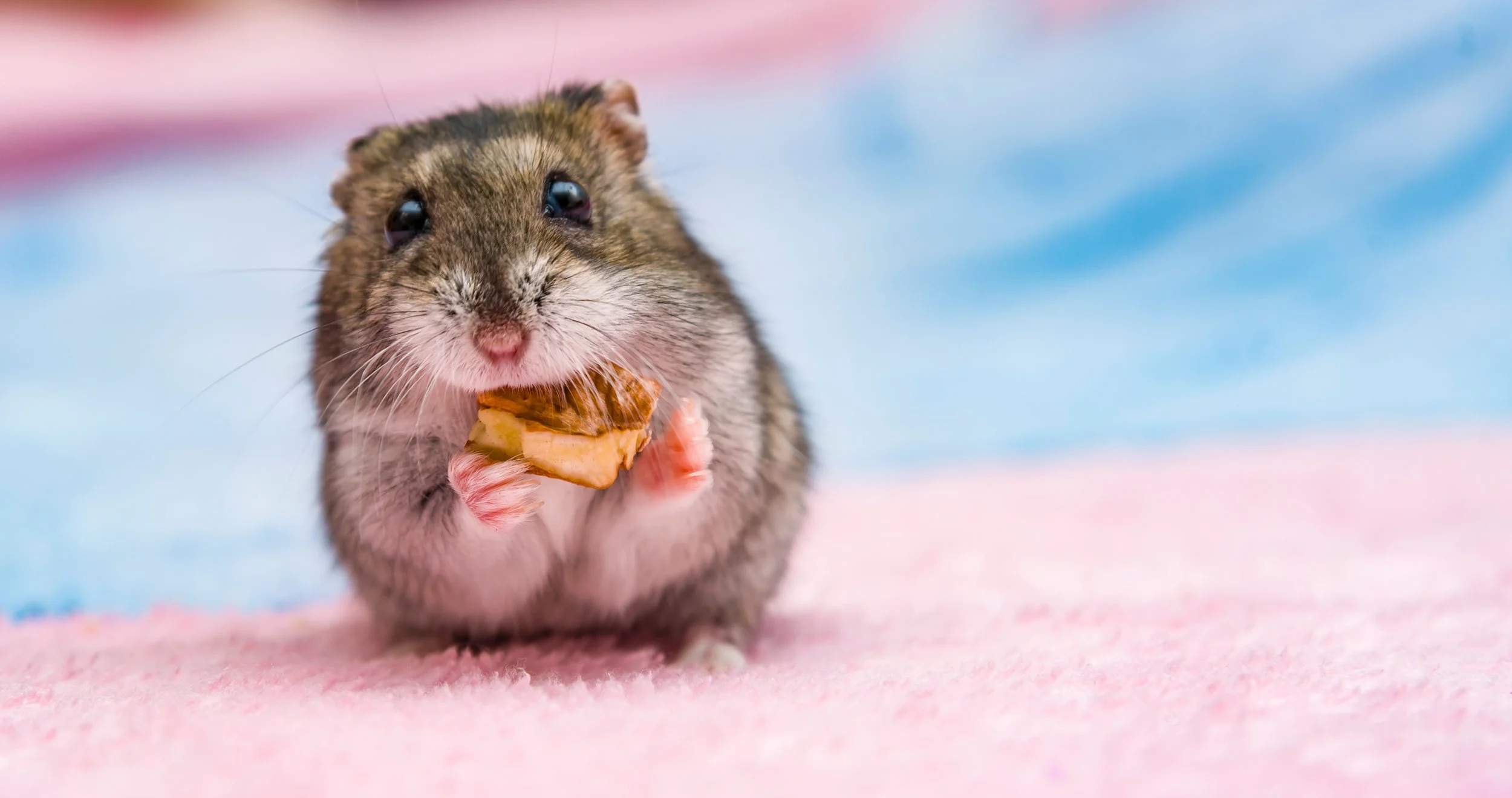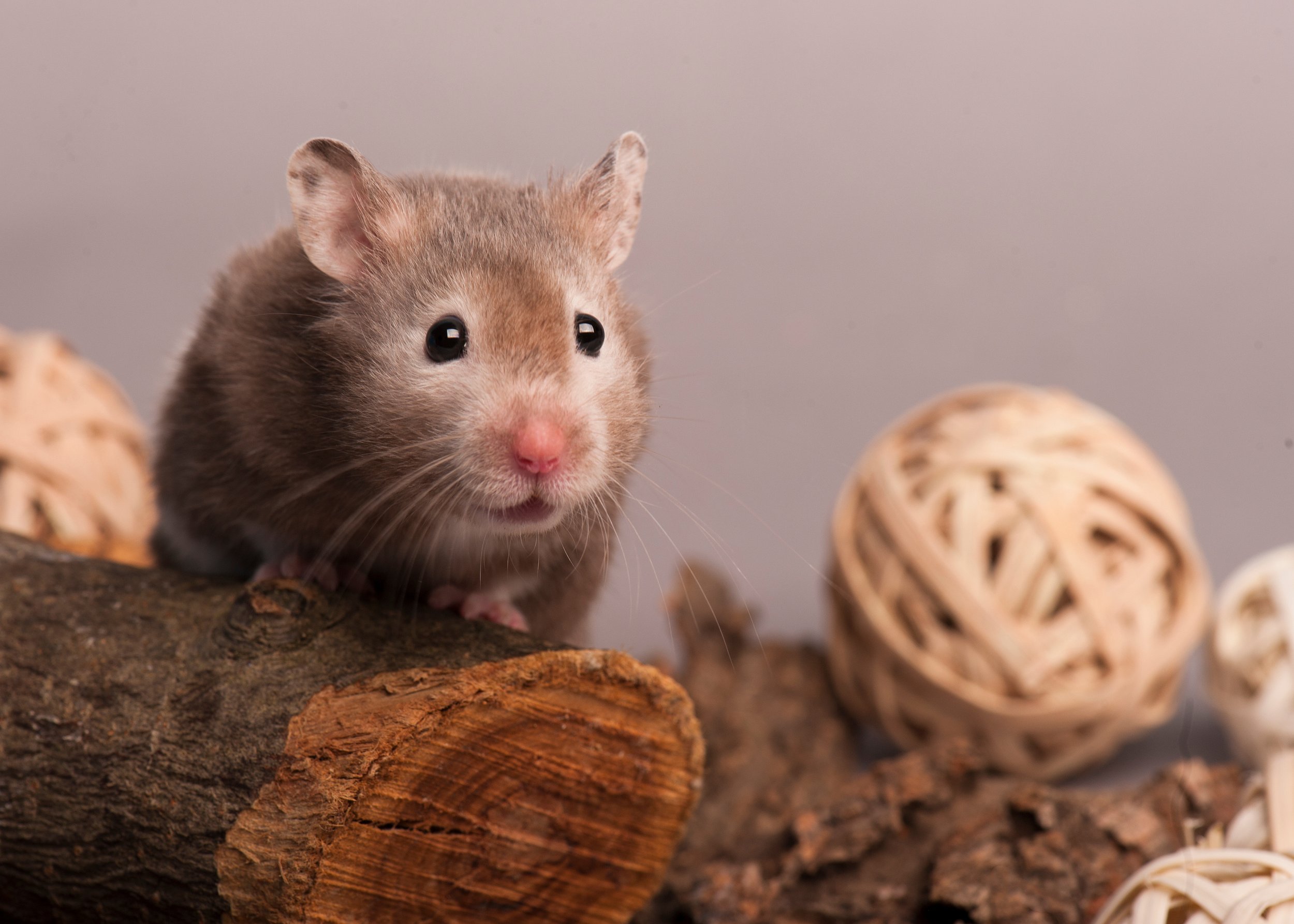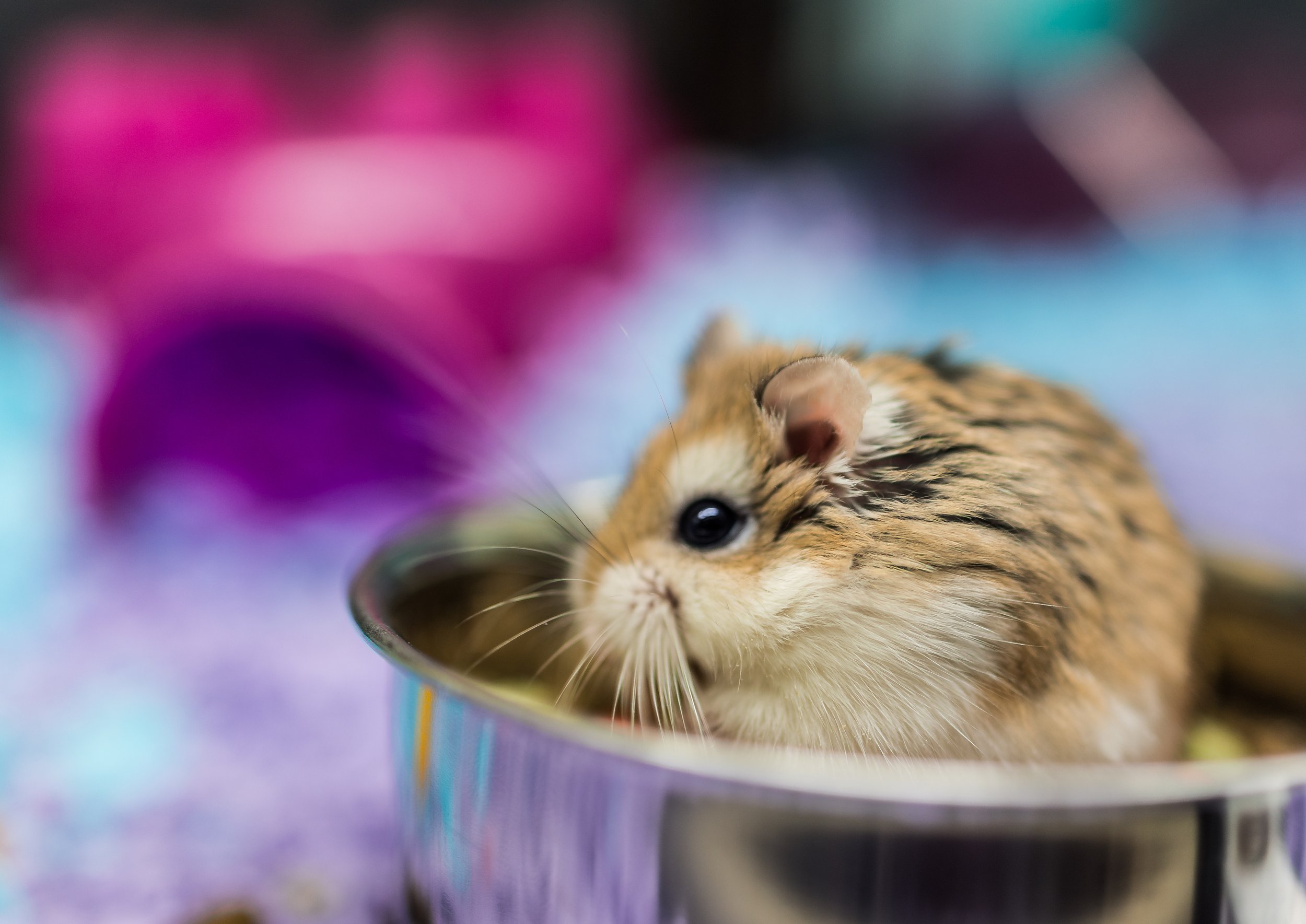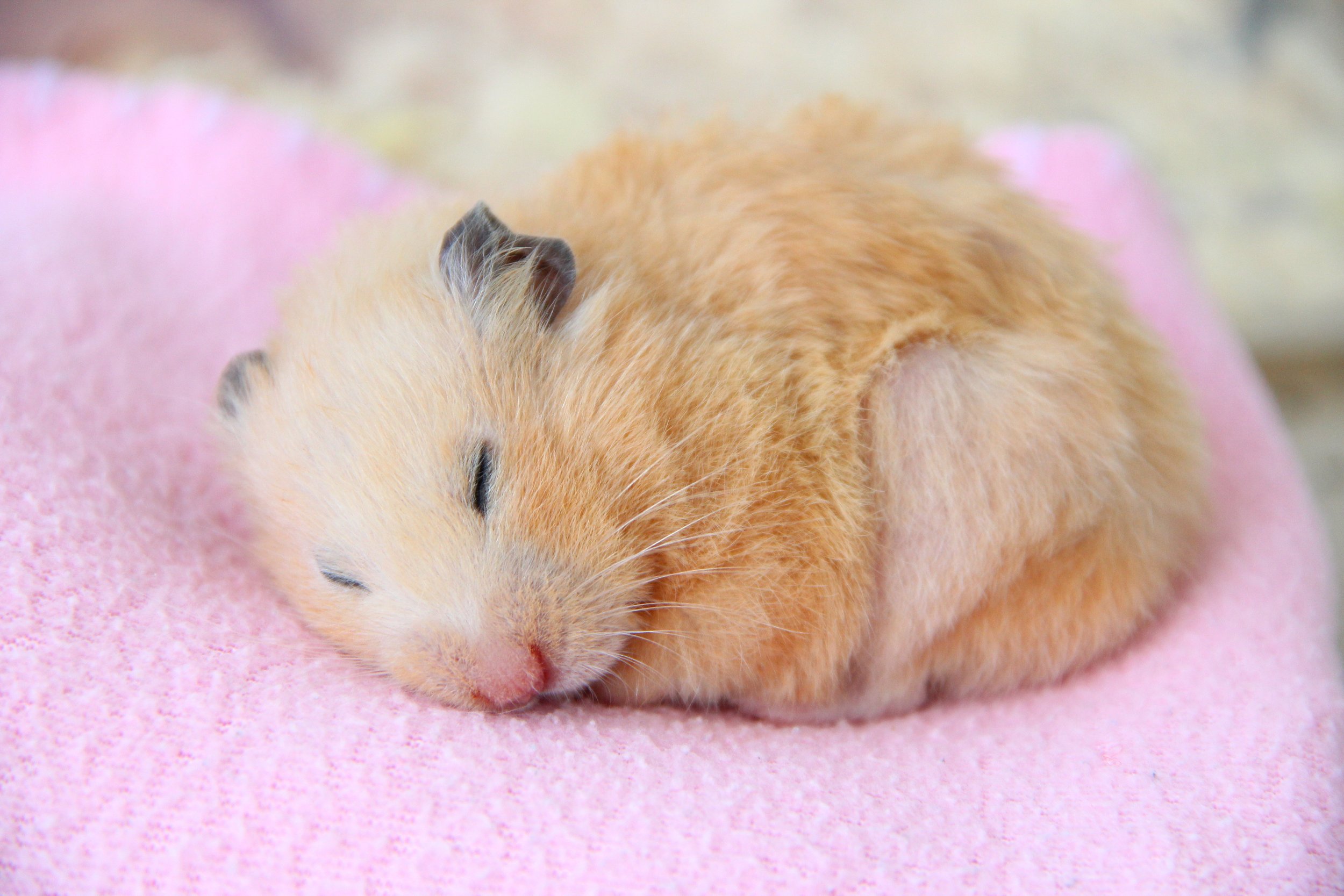Keeping your hamster healthy
Harmonious Home
The bigger the cage, the better
Check out awesome hamster cage options here
Minimum of 450 square inches when you measure the bottom of the cage
Most
Plenty of ventilation
Lots of bedding to burrow in, paper works best!
Our favorites are Oxbow Pure Comfort and Kaytee Clean & Cozy style bedding
Avoid tubes as hamsters may get stuck or not have enough ventilation
Food & Snacks
Check out what hamsters can eat here at California Hamster Association
This resource is the BEST for food recommendations and what to stay away from
Did you know you can feed your hamsters food scraps?
Hamsters can have all different types of vegetables, fruits, carbs, and even sources of protein like plain boiled chicken and meal worms in moderation
Worthy Wheels
An exercise wheel is a MUST as this is one of the most important elements in hamster lives.
Saucer style wheels are a great form of enrichment but don’t count as a running wheel
Wheels should be solid plastic so that your hamster doesn’t hurt his paws
Did you know that hamsters that don’t have a wheel can suffer from depression and anxiety?
Too Small
Notice how this hamster is bending his neck? This is unsafe for your hamster, you’ll want to grab a larger wheel for your hamster so that they can run naturally, like the hamster on the right
Friends or Foes?
Hamsters generally don’t want roommates
They will fight until one gets severely injured
Syrian/Teddy Bear/Golden hamsters must be housed alone
Click here to learn more
While it is possible for dwarf hamsters, like the Roborovski to live together, it can be risky and we generally don’t recommend it
Hamster Health
Common Illnesses
Wet tail - serious illness, sickness that causes diarrhea and weakness in hamsters
Respiratory illness
Abcesses
Tumors in elderly hamsters
Torpor - when a hamster goes into a type of potentially life-threatening hibernation
See a full list here
Signs that something is wrong
Loss of appetite
Inactivity
Diarrhea
Hair loss
Sniffling
Lumps and bumps (especially with aging hamsters)
Wetness around the tail (indication of diarrhea)
These signs are indications that you should call a veterinarian
Things to consider: Since hamsters are nocturnal, and are awake in the evening, it’s a good rule of thumb to get the latest appointment available. Afternoon and evening appointments allow the veterinarian to get a better idea of your hamster’s normal behavior
Bring your hamster in their regular cage or if it is too big, then bring pictures of the cage. This allows your veterinarian to assess their living conditions to see if anything is related to their living conditions.








